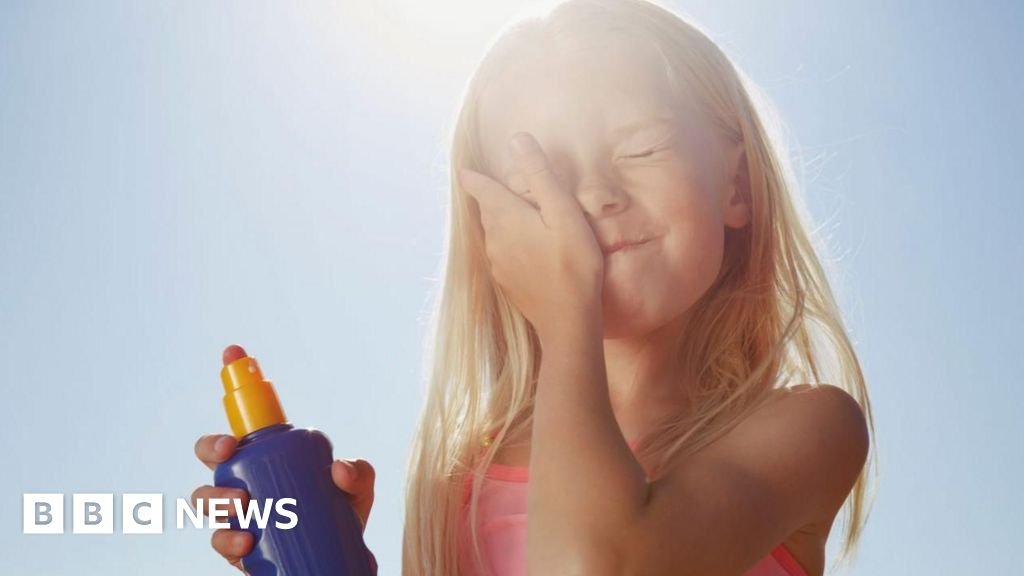Teaching Kids Sun Safety: A New Initiative to Combat Skin Cancer
As awareness of skin cancer rises, a groundbreaking initiative is targeting primary school children to instill sun safety habits from an early age. In Kent, children as young as five are participating in a pilot program that teaches them how to check UV levels, apply sunscreen, and understand sun exposure risks. This educational push aims to significantly reduce the risk of skin cancer in future generations.
Importance of Early Education in Sun Protection
Experts associate childhood sunburn with a higher likelihood of developing melanoma, the deadliest form of skin cancer. In the UK, about 18,300 individuals were diagnosed with melanoma in 2021, a number that is projected to rise to 21,300 by 2026, according to Cancer Research UK. This alarming increase underscores the necessity of proactive measures in sun safety education.
The Pilot Program
The initiative, spearheaded by the Melanoma Fund and integrated into Personal, Social, Health and Economic (PSHE) lessons, is designed to be rolled out nationwide by 2026. At Platt Primary School in Maidstone, children are engaged in activities that empower them to take control of their sun protection:
- Understanding UV Index: Students learn how to read UV indexes to determine when sun protection is necessary.
- Applying Sunscreen: Proper techniques for applying sunscreen are taught to ensure maximum effectiveness.
- Sun Safety Awareness: Children gain a comprehensive understanding of when they need protection from the sun.
Headteacher Emma Smith notes the enthusiastic reception from students, emphasizing the long-term benefits of early education in retaining sun safety knowledge as they grow.
Concerns Over Rising Melanoma Rates
The initiative’s urgency is heightened by a disturbingly increasing trend in melanoma diagnoses among adults. A recent study found that cancer deaths in the UK amount to £10.3 billion annually, making it the most costly health condition. This financial burden highlights the importance of preventive education in mitigating future health risks and costs.
Expert Insights
Consultant dermatologist Dr. Katie Lacy emphasizes that educating children about proper skin care is crucial. She points out that nine out of ten melanoma cases arise from UV exposure, whether from the sun or tanning beds. Regular sunburn can heighten the likelihood of skin cancer, making the notion of a "safe tan" a dangerous myth; tanning itself is a response to skin damage.
The A-B-C-D-E Mole Check
Identifying changes in moles is vital for early detection of potential skin cancer. The ABCDE checklist is a simple tool to help recognize abnormal moles:
- A – Asymmetrical: Does the mole have an uneven shape?
- B – Border: Are the edges blurry or jagged?
- C – Colour: Is it an uneven colour with different tones?
- D – Diameter: Is it larger than other moles?
- E – Evolving: Is it changing in size, shape, or colour, or showing signs of itching or bleeding?
For detailed information about skin checks, visit Cancer Research UK’s resources.
Personal Stories Highlighting the Need for Education
Survivor Kara Leece, diagnosed with melanoma at 29, shares her journey, wishing she had received education on sun safety in her early years. "If I’d had that education at primary school, I think I could’ve prevented it," she reflects, sharing the lasting physical reminder of her battle with cancer. This underscores the initiative’s purpose: to equip the younger generation with knowledge that could save lives.
Simple Tips for Keeping Kids Sun Safe
Establishing sun-safe habits is crucial. Here are practical tips for parents:
- Seek Shade: Keep children in the shade between 11 am and 3 pm, when the sun’s rays are strongest.
- Wear Protective Gear: Equip them with wide-brimmed hats and UV-blocking sunglasses.
- Choose the Right Sunscreen: Utilize a sunscreen with at least SPF 30 and a high star rating, applying it generously and regularly.
For more expert tips, check out the Cancer Research UK’s sun safety advice.
By integrating sun safety education into primary school curriculums, we can foster a generation that is not only informed but proactive about protecting their health. As illustrated by personal stories and expert insights, early education in sun safety could be a game changer in the fight against skin cancer.


